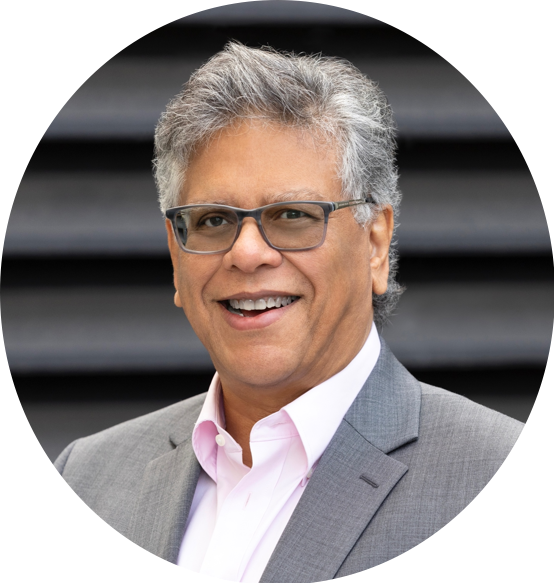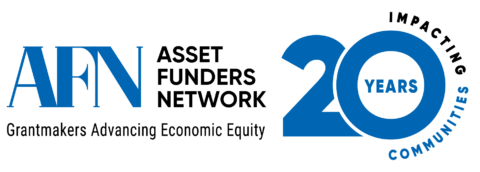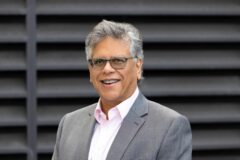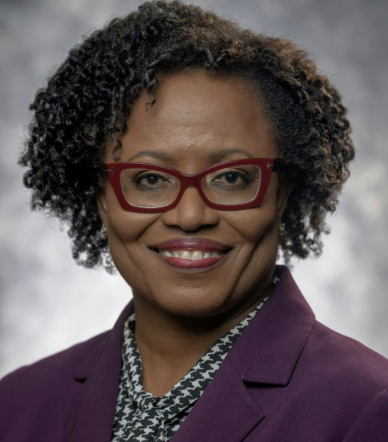 FROM THE PRESIDENT AND CEO
FROM THE PRESIDENT AND CEO
JANUARY 2024
“Be sure you put your feet in the right place, then stand firm.” ― Abraham Lincoln
AFN emerged in the early 2000s from a growing acknowledgment that the traditional pathways to economic security and wealth accumulation, once available to the post-war generation (primarily the white middle class), had eroded. Widening wealth gaps, awareness of systemic inequity, and shrinking public dollars due to ongoing tax cuts required rethinking systems and solutions beyond the focus on anti-poverty measures and welfare reform.
That philanthropic and grantee-led “rethinking” combined with regional collaborations sparked an asset-building movement that today spans 16 regions with 165 diverse members. From the initial focus on savings and pioneering tax credits to efforts increasing disposable income to innovative asset-building strategies such as baby bonds, the collective efforts of AFN members over the last two decades have helped transform the asset-building landscape, disrupting racialized narratives and systems and creating more equitable opportunities that keep families secure and make wealth possible.
As we step into 2024, the challenges facing philanthropy are no less urgent or complex than those that spurred this network’s formation. But today, we stand on twenty years of learnings and insights that can help deepen our reflections and guide our actions toward meaningful and disruptive outcomes.
Throughout this 20th anniversary milestone year, I look forward to leaning into our roots and collaboratively building on the lessons that continue to shape our philanthropic journey.
Lesson 1: Building assets is more important than a job or a good salary
A growing number of indices show that millions of workers with minimum or low-wage jobs can’t make ends meet, even with full-time employment. The inadequacies in the current economic system, characterized by long-term wage stagnation despite economic growth and record profits in many sectors, hostility to unions, and soaring costs of higher education, health care, child care, and pensions, highlight the need for an ongoing reinvention of the economic levers to make widely shared prosperity possible.
This is and remains AFN’s compass — to pursue a broad range of asset-building strategies for low and middle income households. Unlike income, which can be unpredictable, assets can be drawn on in times of need, provide security, support upward mobility, and generational transfers of wealth. With assets, households move from making ends meet to greater security, achieving their aspirations. Asset building integration shifts investment goals from remedying deficiencies to building on strengths by increasing capability, access, and opportunity. It enables foundations to integrate
and expand the scope, scale, and long-term impact of their work,
shifting the focus from families’ vulnerabilities to their opportunities for success.
Lesson 2: Pitch an inclusive tent, empowering funders to prioritize regional solutions
AFN’s emphasis on assets serves as a pivotal entry point, inviting a diverse community of funders and stakeholders to actively engage in advocating for solutions that are both regionally and culturally appropriate.
Our success and impactful growth over the past two decades stem from meeting funders where they are, identifying what’s possible that advances our values and interests, and focusing on growing disposable income and asset creation in the regional context. Embracing this inclusive mentality, characterized by adaptability and responsiveness but focusing on much more than poverty alleviation, is essential to correcting and repairing the challenges posed by economic injustice and escalating inequalities.
Lesson 3: Elevate community and be intentional about gender and race
Leaning into our roots, ultimately, is about our individual and collective reckoning with the structural racism and sexism embedded in our economy from its beginning. Only by actively rooting out systemic biases, amplifying othered voices, repairing or reinventing the economy, and building power with community can philanthropy drive meaningful, lasting change.
This means centering communities most impacted by racism and sexism through purposeful recognition, dialogue, and respectful decision-making. Equitable interventions must build on community strengths and relevant solutions. The well-being and financial security of women and Black, Latinx, Indigenous, and Asian people is at the heart of economic justice strategies.
Lesson 4: Embrace systemic approaches
Increased economic mobility necessitates an honest examination of outcomes and a profound transformation of the interconnecting systems driving and sustaining the race and gender wealth gap. AFN has learned that philanthropy is most impactful when it actively wields its considerable influence, investments, funded research, and power to revolutionize public and private policies, practices, and ingrained beliefs.
AFN’s ongoing commitment to pursuing a systems-focused framework includes leveraging philanthropic power under the guidance of the community, forging collaborations across various sectors and institutions to implement systems-level investments and strategies, and playing an active role in policy and narrative change to reshape the landscape and shared understanding of economic equity for future generations.
Lesson 5: Cultivate learning; mobilize action
AFN has worked hard to earn a reputation as a dynamic network focused on both learning and action. We are committed to delivering timely and insightful content that consistently answers the pivotal question, “What is philanthropy’s role in changing the outcome or system?” Our model relies on establishing value, and investment alignment among our regional members, facilitating shared understanding of issues, diverse solutions, and mobilizing resources to drive actions that propel racial and gender equity in our communities.
Our network’s journey has made progress, but looking ahead necessitates an even deeper pursuit of the above lessons. I encourage funders to join us and stick to the economic justice focus over the next twenty years as we collectively shape the learnings, narratives, and actions that we need to take together to achieve an equitable future where mobility and prosperity are available to all.
This blog is a part of a year-long series called “Roots to Horizons” commemorating AFN’s 20 years in the nonprofit sector.


